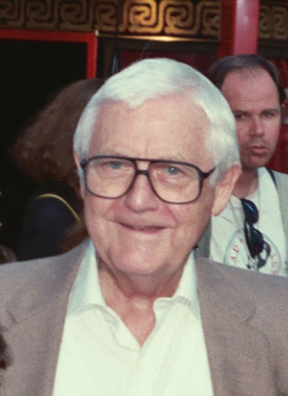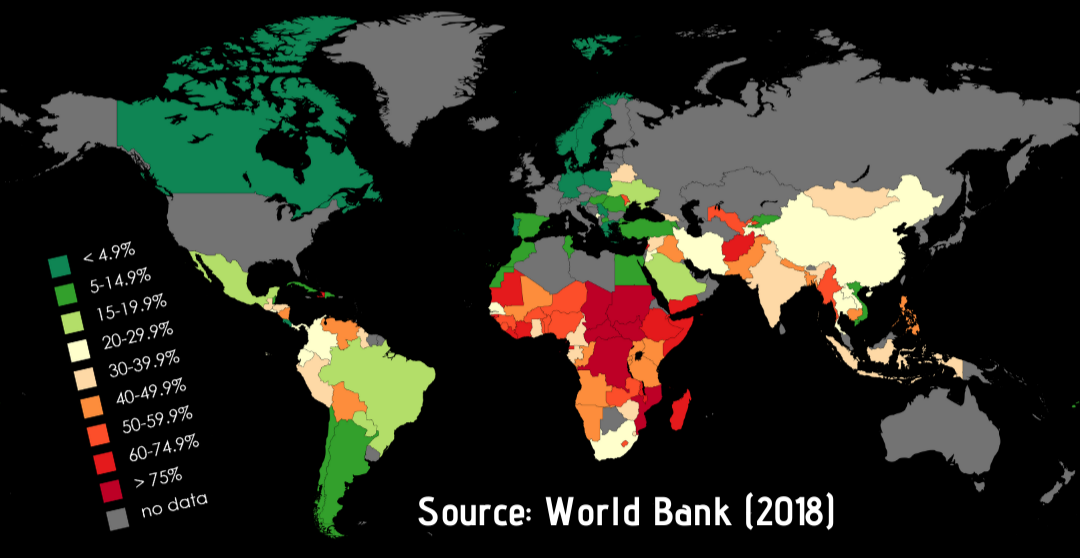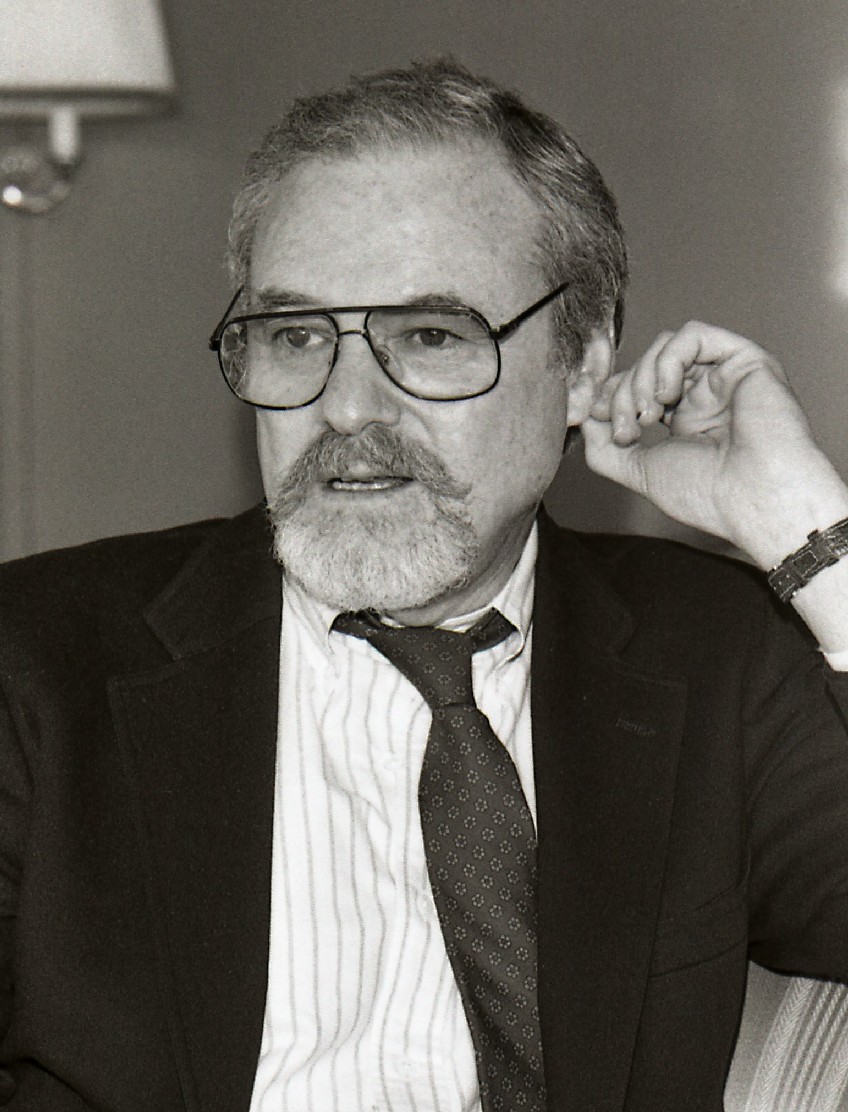|
Lino Brocka
Catalino Ortiz Brocka (April 3, 1939 – May 22, 1991) was a Filipino film director. He is widely regarded as one of the most influential and significant filmmakers in the history of Philippine cinema. He co-founded the organization Concerned Artists of the Philippines (CAP), dedicated to helping artists address issues confronting the country, and the Free the Artist Movement. He was a member of the Coalition for the Restoration of Democracy. He directed landmark films such as ''Tinimbang Ka Ngunit Kulang'' (1974), '' Maynila sa mga Kuko ng Liwanag'' (1975), ''Insiang'' (1976), '' Bayan Ko: Kapit sa Patalim'' (1984), and '' Orapronobis'' (1989). After his death in a car accident in 1991, he was posthumously given the National Artist of the Philippines for Film award for "having made significant contributions to the development of Philippine arts." In 2018, Brocka was identified by the Human Rights Victims' Claims Board as a Motu Proprio human rights violations victim of the ... [...More Info...] [...Related Items...] OR: [Wikipedia] [Google] [Baidu] |
Manila
Manila ( , ; fil, Maynila, ), officially the City of Manila ( fil, Lungsod ng Maynila, ), is the capital of the Philippines, and its second-most populous city. It is highly urbanized and, as of 2019, was the world's most densely populated city proper. Manila is considered to be a global city and rated as an Alpha – City by Globalization and World Cities Research Network (GaWC). It was the first chartered city in the country, designated as such by the Philippine Commission Act 183 of July 31, 1901. It became autonomous with the passage of Republic Act No. 409, "The Revised Charter of the City of Manila", on June 18, 1949. Manila is considered to be part of the world's original set of global cities because its commercial networks were the first to extend across the Pacific Ocean and connect Asia with the Spanish Americas through the galleon trade; when this was accomplished, it marked the first time in world history that an uninterrupted chain of trade routes circling ... [...More Info...] [...Related Items...] OR: [Wikipedia] [Google] [Baidu] |
Pilar, Sorsogon
Pilar, officially the Municipality of Pilar, is a 1st class municipality in the province of Sorsogon, Philippines. According to the 2020 census, it has a population of 75,793 people. Pilar's economy is mainly agricultural. Despite efforts on multiplicity, this town is still dependent on the monoculture of coconut. Pilar is from Sorsogon City and from Manila. Geography Barangays Pilar is subdivided into 49 barangays. In 1957 the sitios of Naspi and Calaguitan were separated from the barrio of Putiao and converted into the barrio of Naspi. Climate Demographics Economy Tourism Though whale sharks are more associated with the town of Donsol Donsol, officially the Municipality of Donsol, (Central Bikol: Banwaan kan Donsol; Tagalog: Bayan ng Donsol) is a 3rd class municipality in the province of Sorsogon, Philippines. According to the 2020 census, it has a population of 50,281 people. ..., whale sharks can also be seen in Pilar Bay near San Antonio. Interaction wit ... [...More Info...] [...Related Items...] OR: [Wikipedia] [Google] [Baidu] |
The Sound Of Music (film)
''The Sound of Music'' is a 1965 American musical drama film produced and directed by Robert Wise, and starring Julie Andrews and Christopher Plummer, with Richard Haydn, Peggy Wood, Charmian Carr, and Eleanor Parker. The film is an adaptation of the 1959 stage musical of the same name, composed by Richard Rodgers with lyrics by Oscar Hammerstein II. The film's screenplay was written by Ernest Lehman, adapted from the stage musical's book by Lindsay and Crouse. Based on the 1949 memoir '' The Story of the Trapp Family Singers'' by Maria von Trapp, the film is about a young Austrian postulant in Salzburg, Austria, in 1938 who is sent to the villa of a retired naval officer and widower to be governess to his seven children. After bringing love and music into the lives of the family, she marries the officer and, together with the children, finds a way to survive the loss of their homeland to the Nazis. Filming took place from March to September 1964 in Los Angeles and Salzburg. ' ... [...More Info...] [...Related Items...] OR: [Wikipedia] [Google] [Baidu] |
Shakespearean
William Shakespeare ( 26 April 1564 – 23 April 1616) was an English playwright, poet and actor. He is widely regarded as the greatest writer in the English language and the world's pre-eminent dramatist. He is often called England's national poet and the "Bard of Avon" (or simply "the Bard"). His extant works, including collaborations, consist of some 39 plays, 154 sonnets, three long narrative poems, and a few other verses, some of uncertain authorship. His plays have been translated into every major living language and are performed more often than those of any other playwright. He remains arguably the most influential writer in the English language, and his works continue to be studied and reinterpreted. Shakespeare was born and raised in Stratford-upon-Avon, Warwickshire. At the age of 18, he married Anne Hathaway, with whom he had three children: Susanna, and twins Hamnet and Judith. Sometime between 1585 and 1592, he began a successful career in London as an act ... [...More Info...] [...Related Items...] OR: [Wikipedia] [Google] [Baidu] |
Tondo, Manila
Tondo is a district located in Manila, Philippines. It is the largest in terms of area and population of Manila's sixteen districts, with a Census-estimated 631,313 people in 2015 and consists of two congressional districts. It is also the second most densely populated district in the city. Etymology The name Tondo can be derived from its Old Tagalog name, Tundun as inscribed in the Laguna Copperplate Inscription of 900 AD, the earliest native document found within the Philippines. Dutch anthropologist Antoon Postma, the first to translate the copperplate, believes the term ''tundun'' originated from the old Indian language Sanskrit, which was used alongside Old Malay as a language of politics and religion in the area at the time. Before this landmark discovery, several theories (however incorrect now) existed. Philippine National Artist Nick Joaquin once suggested that it might be a reference to a high ground ("tundok"). On the other hand, French linguist Jean-Paul Potet, s ... [...More Info...] [...Related Items...] OR: [Wikipedia] [Google] [Baidu] |
Slum
A slum is a highly populated urban residential area consisting of densely packed housing units of weak build quality and often associated with poverty. The infrastructure in slums is often deteriorated or incomplete, and they are primarily inhabited by impoverished people.What are slums and why do they exist? UN-Habitat, Kenya (April 2007) Although slums are usually located in s, in some countries they can be located in suburban areas where housing quality is low and living conditions are poor. While slums differ in size and other characteristics, most lack r ... [...More Info...] [...Related Items...] OR: [Wikipedia] [Google] [Baidu] |
1978 Cannes Film Festival
The 31st Cannes Film Festival was held from 16 to 30 May 1978. The Palme d'Or went to the L'albero degli zoccoli by Ermanno Olmi. This festival saw the introduction of a new non-competitive section, 'Un Certain Regard', which replaces 'Les Yeux Fertiles' (1975-1977), 'L'Air du temps' and 'Le Passé composé'. The festival opened with '' Moy laskovyy i nezhnyy zver'', directed by Emil Loteanu and closed with '' Fedora'', directed by Billy Wilder. Jury The following people were appointed as the Jury of the 1978 feature film competition: Feature films *Alan J. Pakula (USA) Jury President *Franco Brusati (Italy) * François Chalais (France) *Michel Ciment (France) *Claude Goretta (Switzerland) *Andrei Konchalovsky (Soviet Union) *Harry Saltzman (USA) * Liv Ullmann (Norway) *Georges Wakhévitch (France) Official selection In competition - Feature film The following feature films competed for the Palme d'Or: *''Blindfolded Eyes'' (''Los ojos vendados'') by Carlos Saura *''Bravo m ... [...More Info...] [...Related Items...] OR: [Wikipedia] [Google] [Baidu] |
Batch '81
''Alpha Kappa Omega Batch '81'' (also known as ''Batch '81'' or ''ΑΚΩ 81'') is a 1982 Filipino psychological drama film directed by Mike de Leon, with a screenplay by de Leon, Clodualdo del Mundo, Jr., and Raquel Villavicencio. The film depicts the titular fraternity's harsh initiation of new batch members as seen through the eyes of pre-med student Sid Lucero, played by Mark Gil in what is generally recognized as his breakout role. The film premiered at the 1982 Cannes Film Festival during the Directors' Fortnight, screened alongside de Leon's 1981 film ''Kisapmata''. Upon release, the film received critical acclaim. It was adjudged by the Manunuri ng Pelikulang Pilipino as one of the Ten Best Films of the Decade. In 2017, the film was digitally restored with the support of the Asian Film Archive, with a theatrical premiere at the 74th Venice International Film Festival as part of the Venice Classics section. Plot Sid Lucero (Mark Gil), a university student, is pushed by hi ... [...More Info...] [...Related Items...] OR: [Wikipedia] [Google] [Baidu] |
Kisapmata
''Kisapmata'' (English: ''In the Wink of an Eye'') is a 1981 Filipino psychological horror film directed by Mike de Leon, with a screenplay by de Leon, Clodualdo del Mundo Jr., and Raquel Villavicencio. It stars Vic Silayan, Charo Santos, Jay Ilagan, and Charito Solis. The plot was inspired by the crime reportage "The House on Zapote Street" written by Nick Joaquin under the pen name Quijano de Manila. The article was first published in the January 1961 issue of ''Philippines Free Press'' magazine, and was later republished in Joaquin's 1977 non-fiction anthology ''Reportage on Crime: Thirteen Horror Happenings that Hit the Headlines''. Written in the New Journalism style, the piece chronicles the events leading up to the highly publicized familicide committed by Pablo Cabading, a retired policeman. Premiering at the 7th Metro Manila Film Festival, the film received critical acclaim, establishing de Leon as one of the great directors of the new generation of Filipino filmmak ... [...More Info...] [...Related Items...] OR: [Wikipedia] [Google] [Baidu] |
Cinematography
Cinematography (from ancient Greek κίνημα, ''kìnema'' "movement" and γράφειν, ''gràphein'' "to write") is the art of motion picture (and more recently, electronic video camera) photography. Cinematographers use a lens to focus reflected light from objects into a real image that is transferred to some image sensor or light-sensitive material inside a movie camera. These exposures are created sequentially and preserved for later processing and viewing as a motion picture. Capturing images with an electronic image sensor produces an electrical charge for each pixel in the image, which is electronically processed and stored in a video file for subsequent processing or display. Images captured with photographic emulsion result in a series of invisible latent images on the film stock, which are chemically " developed" into a visible image. The images on the film stock are projected for viewing the same motion picture. Cinematography finds uses in many fields of ... [...More Info...] [...Related Items...] OR: [Wikipedia] [Google] [Baidu] |
Derek Malcolm
Derek Elliston Michael Malcolm (born 12 May 1932) is an English film critic. Son of J. Douglas Malcolm (died 1967) and Dorothy Vera (died 1964; née Elliston-Taylor), Malcolm was educated at Eton College and Merton College, Oxford. As a child he expressed an interest in film, often going to the newsreel cinema on Victoria station. He worked for several decades as a film critic for ''The Guardian'', having previously been an amateur jockey and the paper's first horse racing correspondent. In 1977, he was a member of the jury at the 27th Berlin International Film Festival. In the mid-1980s he was host of ''The Film Club'' on BBC2, which was dedicated to art house films, and was director of the London Film Festival for several years. After leaving ''The Guardian'' in 2000, he published his final series of articles, ''The Century of Films'', in which he discusses films he admires from his favourite directors from around the world. He became chief film critic for the ''Evening Stand ... [...More Info...] [...Related Items...] OR: [Wikipedia] [Google] [Baidu] |

.png)






